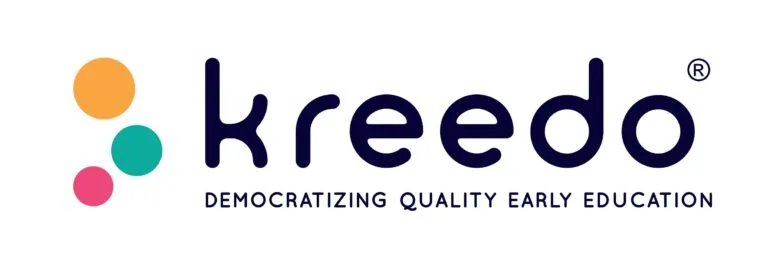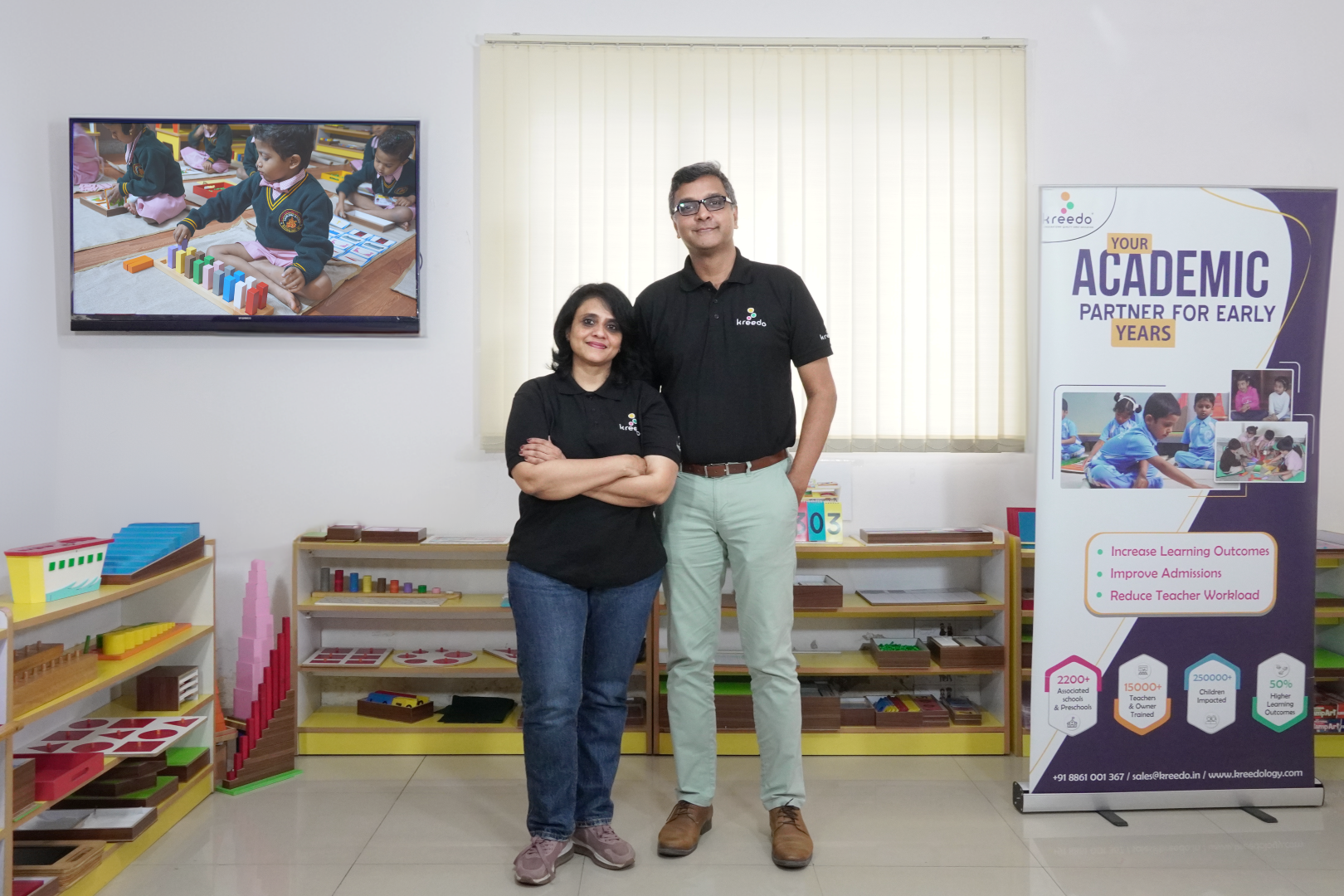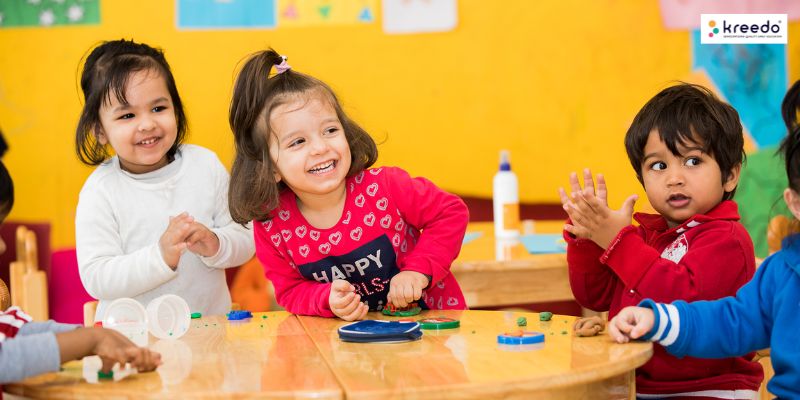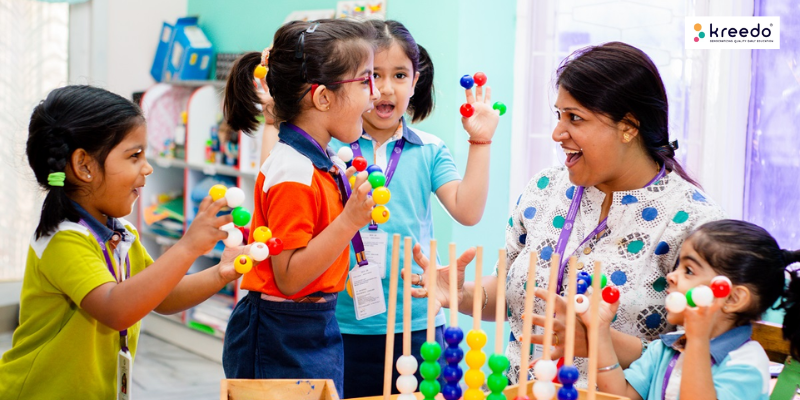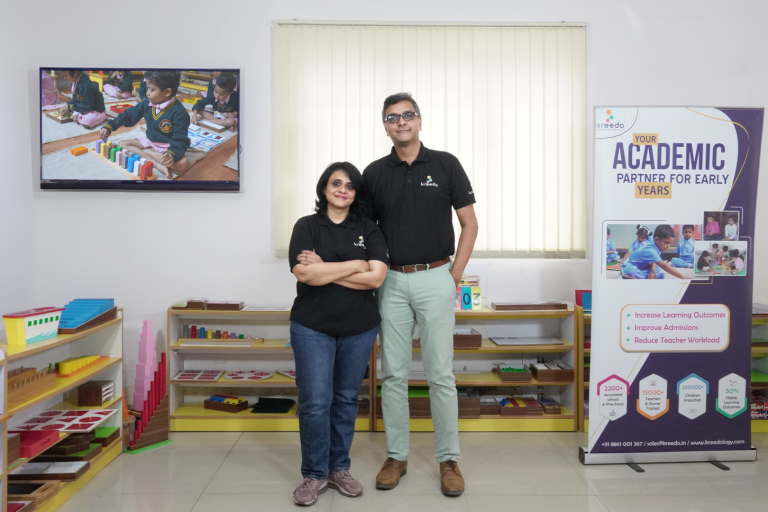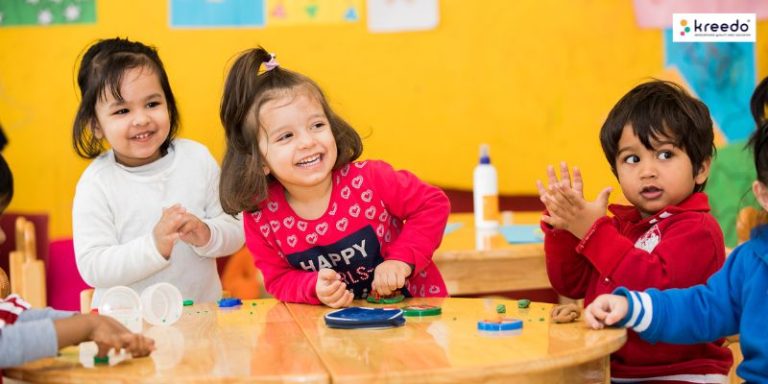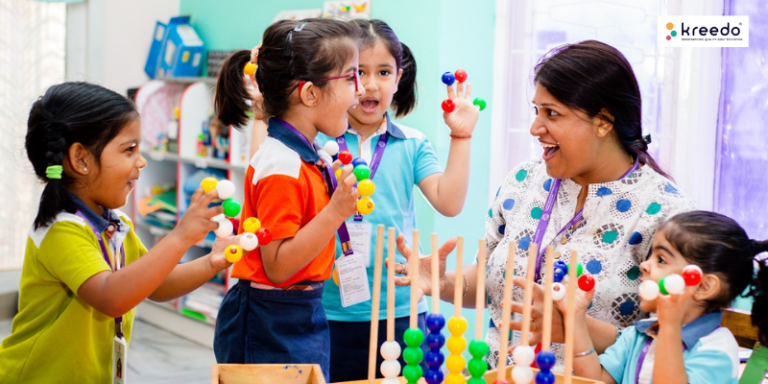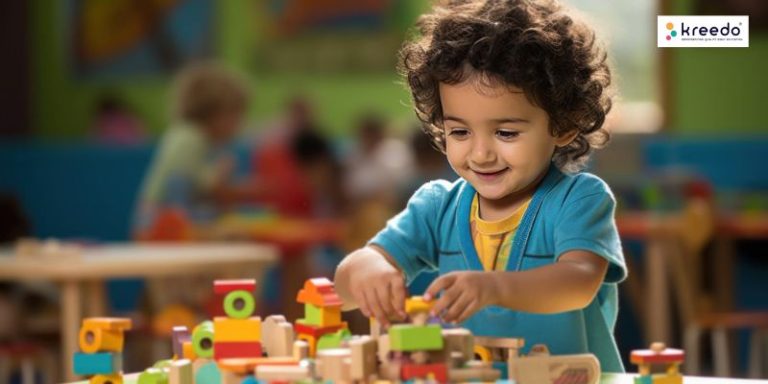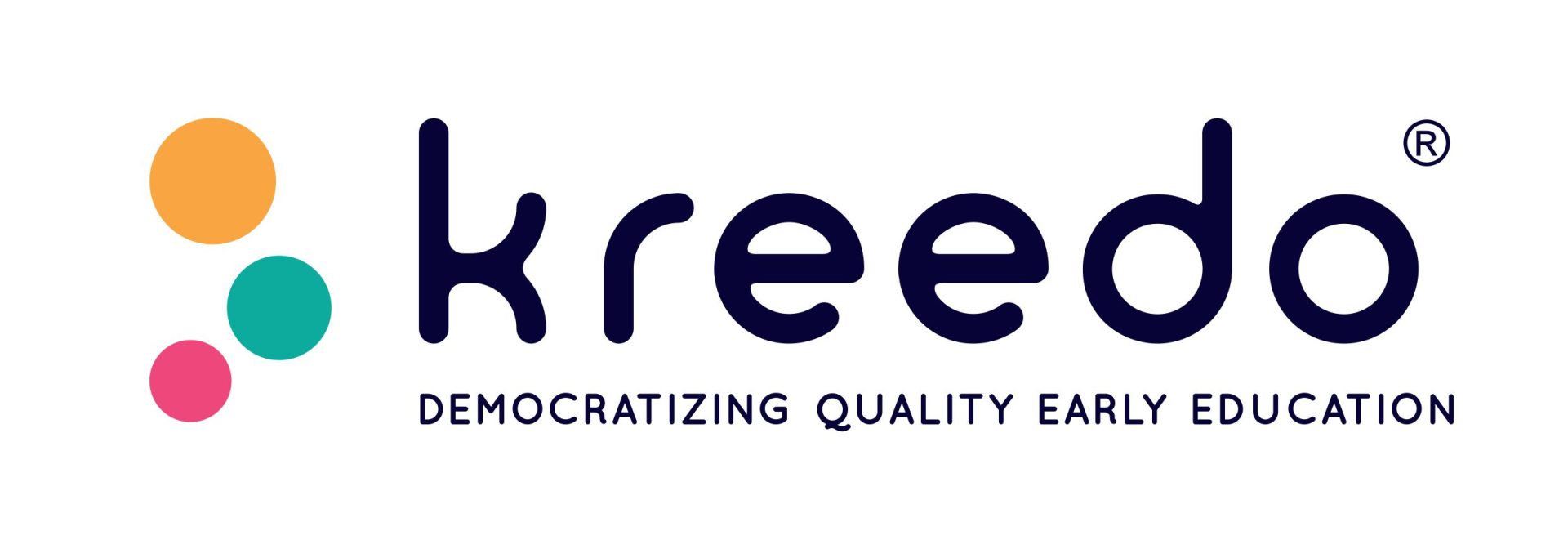This article was published in the Indian Express, on 26th April 2015 in the Shimoga Edition
It is that time of the year when many anxious parents are preparing to send their little ones to school for the first time. So what are the factors to be considered while choosing the right preschool for your child?
Early Years (from birth to age 7) is a very special and fast-paced time for brain development. We see children below 6 pick up new languages with ease and remember it for life. If the child has been exposed to the concept of multiplication early in a particular fashion, it is more likely that he will comprehend it better for life. Today research in the fields of education, neurology, and psychology has clearly shown us that the brain has a “use it or lose it” policy. Hence areas of development and work that the child has been exposed to early are the pathways that will be used and retained by the brain.
Education starts with sharpening the senses and exposing the child to the world around them through specific learning aids. If we want to teach the child what is length, it is critical that he works with a material that easily helps him experience length instead of saying “Length of this scale is 12 inches”. In order to do this, it is critical that the child be exposed to a curriculum that is based on materials and not on music/art / rote learning.
Preschools are NOT just places where the child just spends 2-3 hours a day to prepare for “real school” or where the child learns to socialize with other children, have fun, do some coloring, dance, music, etc. A good preschool education goes a long way beyond just these basic requirements. Preschools are probably the most important institutions in a child’s life where if the child is provided with the right environment, it will go a long way in shaping the child’s attitudes and abilities in the future.
Since the child has an enormous ability to absorb and learn during this period, the child needs to be exposed to a structured environment where he is exposed to practical life skills, sensorial, motor skills, language skills, mathematics, geography, science, culture, themes, and more. Concepts like place value system in Maths and reading 3 letter words in a language by the time they are 4 years old, and concepts like division, sentence formation, India map, solar system, and more, all in concrete form (with materials) by age 6 can be easily achieved with this type of learning.
Every child is unique. So, a curriculum must take into consideration the fact that children come with different abilities and backgrounds. Children get admitted into preschools throughout the year and the age that they come into the preschool determines the stage of development that they are at. Since the child is developing so fast, a small age difference of 3 months can also make a huge difference. Hence it is critical that the curriculum is individualized for every child.
A system that bunches children into rigid age groups like playgroup, LKG, etc. will be wasted because, within a playgroup/nursery, each child is at a different level based on their inherent abilities and their age. Just like us, children go through their daily mood and interest swings where one day numbers are very interesting to them and the next hour language is what they want to do. A daily rigid curriculum plan that is followed in many preschools is not in the interest of the children who are all at different levels and have different interests on different days.
Ideally, a mixed-age classroom where children are not segregated based on their ages as playgroup, LKG, etc. works best. This mixed-age environment significantly improves the social bonding between children, encouraging older children to be caring and supportive. The younger children learn faster observing the elder ones at work. Hence we have both academic and social learning taken care of very naturally in a mixed age group, just like a joint family.
It is obvious that this will not be possible in large K-12 schools where the focus is on the high school and most times kindergärtners are left to either free play or made to sit on desks/benches and write just like their older counterparts.
It is also very difficult to get these criteria satisfied in “branded” schools. In most franchised schools the interest of the owners is more about the Return on investment. Since they have heavily invested in the school and have to shell out huge amounts of royalties, it becomes imperative to have a large number of children. This focus on the quantity of children rather than the quality of education slows the progress of the children. Also most chain “brands” do not adequately train their franchisees in terms of educating the child. The emphasis is on the glamour and marketing of the brand, and the franchisees are more often lost when asked questions about what really helps the child learn.
When parents visit a school they must keep in mind several aspects besides safety and hygiene which are of course primary considerations.
-
- Is the teacher-child ratio around 1:12?
- Are the teaching aids easily accessible to the children? Are they just jigsaw puzzles and stacking toys or do they cover areas like decimal system, quantity introduction, phonetics, dimensions, and more?
- Is the owner passionate about educating the child and aware of the developmental needs of the child? Is she able to explain to you why your child is going to cry in the first few weeks of joining the school, and how they will get the child to start working with the materials?
- Is the school only following a group curriculum, do they have time for every child to work with the material/learning equipment of his choice? Are the teachers adequately trained to show the child how to work with the materials?
Some of these answers will give you insight into which school that will best help your child shape his future. Quality Early Education is not a luxury but a necessity and this decision of yours will affect the way your child is likely to think for life. Do not go for the “convenience” of admission in a big school or the “glamour” quotient in a school filled with cartoon pictures. Go to a school that will provide meaningful education to your child. A preschool where there is a close integration between methodology, curriculum, teachers, materials, and the assessment should serve the purpose.
